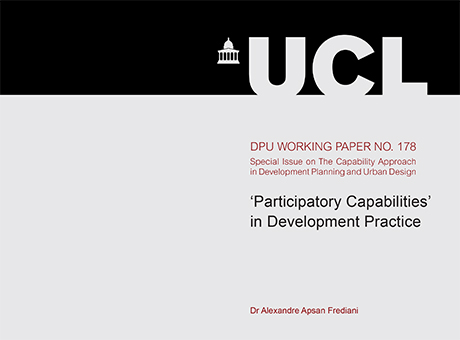DPU Working Paper - No. 178
‘Participatory Capabilities’ in Development Practice

12 June 2015
Author: Dr Alexandre Apsan Frediani
Publication Date: May 2015
ISSN: 1474-3280
Participatory methods have been strongly criticised by being too context specific and localised; by being instrumental to predetermined objectives, rather than an end in themselves; by addressing the manifestation of poverty rather than the underlying causes of deprivation; by reproducing local power relations, rather than critically deconstructing discriminatory practices; by being a “tyranny” rather than transformative (Cooke and Kothari, 2001). The critiques call for a theoretical framework that can safeguard the original radical roots of participatory methods (Hickey and Mohan, 2004). This article argues that the capability approach can complement participatory methods by providing the theoretical underpinnings needed to assess participation as an end in itself. With the objective to assess the complementary aspects of the capability approach and participatory methods, this paper expands on the concept of “participatory capabilities” to unfold local residents’ choice, ability and opportunity to engage in participatory processes. The paper proposes a framework for the application of participatory methods through a capability approach in a way that unfolds its limitations as well as opportunities for transformative change.
 Close
Close

